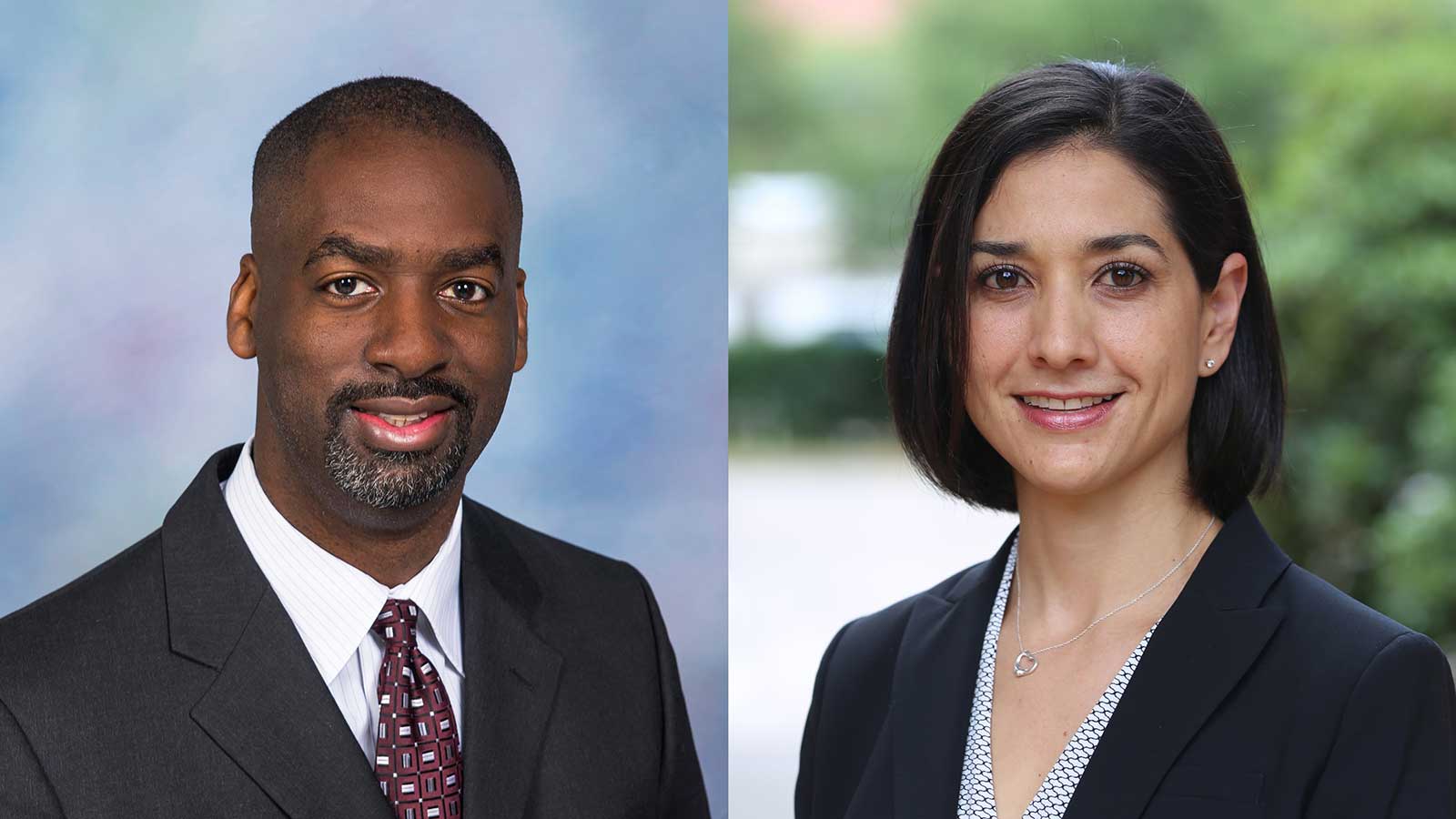Two faculty members in the George R. Brown School of Engineering at Rice, C. Fred Higgs III and Renata Ramos, are among the 140 colleagues who have been inducted this year into the American Institute for Medical and Biological Engineering (AIMBE) College of Fellows.
AIMBE fellows are recognized for their contributions to medical and biological engineering research, pedagogy, and/or practice, and for their ability to serve as assets to the university or advocates for the field and its diversity. The formal induction into the AIMBE College of Fellows took place March 27.
Higgs is vice provost for academic affairs, the John and Ann Doerr Professor of Mechanical Engineering (MECH), joint professor of bioengineering (BIOE), and the faculty director of the Rice Center for Engineering Leadership (RCEL). Ramos is a teaching professor in BIOE, associate dean for academic affairs in the school of engineering and chair of the Center for Teaching Excellence Faculty Fellows.
“Inspired by the artificial knee implant that his father received, Fred’s research in particle flow and tribology has had an impact on many industrial applications, including biotechnology,” said Amy Dittmar, the Howard R. Hughes Provost at Rice. “Much of his lab’s work is dedicated to understanding the lifetime performance of orthopedic implants.”
Higgs earned his Ph.D. in MECH from Rensselaer Polytechnic Institute in Troy, N.Y. in 2001. For two years he was a postdoctoral research fellow at Georgia Tech, and for 13 years was a MECH faculty member at Carnegie Mellon University. He joined the Rice faculty in 2016.
“The AIMBE honor reflects Fred’s contributions in multiple areas,” Dittmar said, “including improving the quality of life for people who receive hip and knee replacements. I’m proud of his leadership and grateful his peers have awarded him this high honor for his contributions to the medical and biological engineering community at large.”
Ramos earned her B.S. in MECH from the Instituto Tecnológico y de Estudios Superiores de Monterrey, México, in 2002 and her Ph.D. in biomedical engineering from the University of Arizona in 2008. She joined the Rice faculty in 2010.
Ramos was honored for her outstanding contributions to pedagogical innovation in the area of biomedical engineering education. Her work focuses on multidisciplinary and equitable educational programs and opportunities for students.
“AIMBE’s recognition of Renata’s commitment to developing innovative approaches to engineering education underscores how impactful and far-reaching her work is,” Dittmar said. “Throughout her career, she has championed numerous educational initiatives to enhance extracurricular opportunities, professional development and recognition of engineering students and provided mentorship to them on bioengineering projects that will lead to advances in the medical device field.”
Ramos’ pedagogical innovations have focused on developing life-long learners and critical thinkers by implementing student-centered activities such as peer-teaching, project-based learning and open-ended laboratory activities.
“Classroom innovation,” Dittmar said, “is imperative to the future of our disciplines, and creates an openness and creativity within our students to prepare them to solve the most pressing problems. I’m pleased that AIMBE is honoring Renata’s work in this area.”

